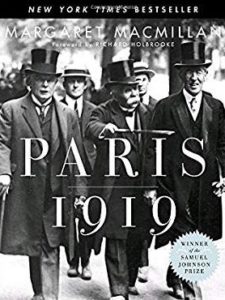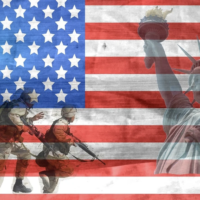 Last year, I read “Paris 1919, Six Months that Changed the World,” Margaret MacMillan’s best seller published in 2001. This book told about the Treaty of Versailles signed on June 28, 1919, which ended World War I. She covered the difficult challenges, personalities, issues, and disappointments that the Allies confronted.
Last year, I read “Paris 1919, Six Months that Changed the World,” Margaret MacMillan’s best seller published in 2001. This book told about the Treaty of Versailles signed on June 28, 1919, which ended World War I. She covered the difficult challenges, personalities, issues, and disappointments that the Allies confronted.
I thought the treaty’s main legacy was the mistreatment of Germany especially in regards to reparations. Since Germany surrendered accepting President Wilson’s Fourteen Points, they felt betrayed when the victorious powers ignored the agreement. This double-cross provided fuel for Hitler and justification for his conquests.
The four major powers that led the Paris Peace Conference — Great Britain, France, United States, and Italy — had to grapple with enormous issues, nationalism, secret treaties, rebellions, fear of Bolshevism, new borders, colonial acquisitions, not to mention the break up of two empires — Austro-Hungarian and Ottoman.
Foreshadowing the treaty was the French desire to revenge their humiliating defeat in 1871 in the Franco-Prussian War.
Many including me blamed the inferior peace treaty for the seeds for the WWII. But Dr. MacMillan states, “When the war came n 1939, it was the result of twenty years of decisions since Versailles, not of arrangements made in 1919.”
While many believe that the chapter is closed for World War I, many of the problems today occurred because of its effects such as Israel/Palestine, Iraq, Yugoslavia, Syria, and Lebanon.
While most have tired from the wars in Afghanistan and Iraq, many still want to use force in Syria, Libya, Egypt, and most recently with Russia over the Ukraine conflagration. If more people read history, they might see the futility of wasting our treasure and youth in more fighting.



